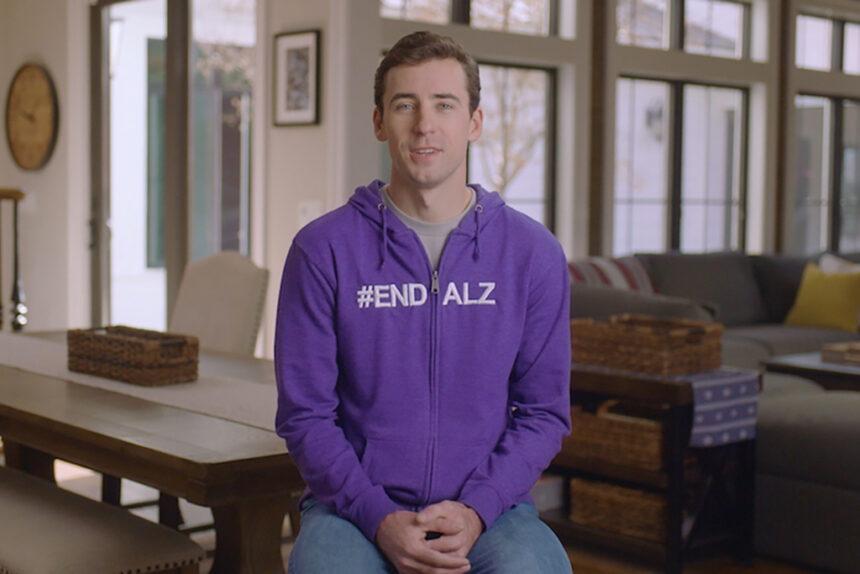The Alzheimer’s Association is getting a hand from a NASCAR driver to urge people to address signs of cognitive decline in their loved ones as quickly as possible.
The nonprofit has teamed with the motor sport and the Ad Council on the latest iteration of a campaign aimed at building understanding of the importance of early detection of Alzheimer’s. The Time To Talk public service announcement features NASCAR driver Ryan Blaney discussing the loss of his grandfather to Alzheimer’s.
“The vision is really to make sure that [Blaney’s] story helps other people who may be living with someone where something doesn’t feel quite right, but they are lacking either the knowledge, the resources or the permission to come forward and have that conversation with their loved one,” said Heidi Arthur, chief campaign development officer at the Ad Council, a nonprofit that partners with other organizations to produce PSAs.
In the video, Blaney shares how his grandfather, Lou Blaney, inspired his sons and Ryan to begin driving.
“We dedicate a lot of time to going as fast as possible,” said Blaney, who wears a hoodie with the text #EndAlz. “My grandpa, Lou, is the reason my dad and I started racing, and I’m really proud to follow in his tracks, but when my grandpa was diagnosed with Alzheimer’s, it was a very unexpected bump in the road for us.”
Lou died in 2009, and Blaney has since established a foundation to raise awareness and funding for brain health.
The Alzheimer’s Association encourages people to discuss warning signs of Alzheimer’s with a family member. Early detection improves their chances of receiving treatment for the disease, participating in trials or making lifestyle changes that could preserve cognitive function, according to the organization.
The group points to the potential of a drug, Aduhelm, that the Food and Drug Administration approved in 2021. But a congressional investigation has criticized the agency and the drug’s manufacturer, Biogen, for an “atypical collaboration” in the approval process and Biogen setting an “unjustifiably high price,” $56,000, despite questions over whether it actually slowed cognitive decline.
There is not a cure for Alzheimer’s, but the FDA has also approved another drug, Leqembi, that can “target and affect the underlying disease process of Alzheimer’s, instead of only treating the symptoms of the disease,” the agency said.
“I think there’s the misperception that if it’s Alzheimer’s, why bother? And in so many cases, there could be real benefits of identifying it early on,” Arthur said.
In the PSA, Blaney acknowledges that talking to family members about how they seem to be acting differently or having problems with their memory can be very difficult. “But if you notice something, have a conversation with your loved one,” Blaney said.
The organizations plan to air the PSA on broadcast, radio and digital platforms, and NASCAR will donate space on its tracks and in its media.
This article originally appeared on PRWeek US.








